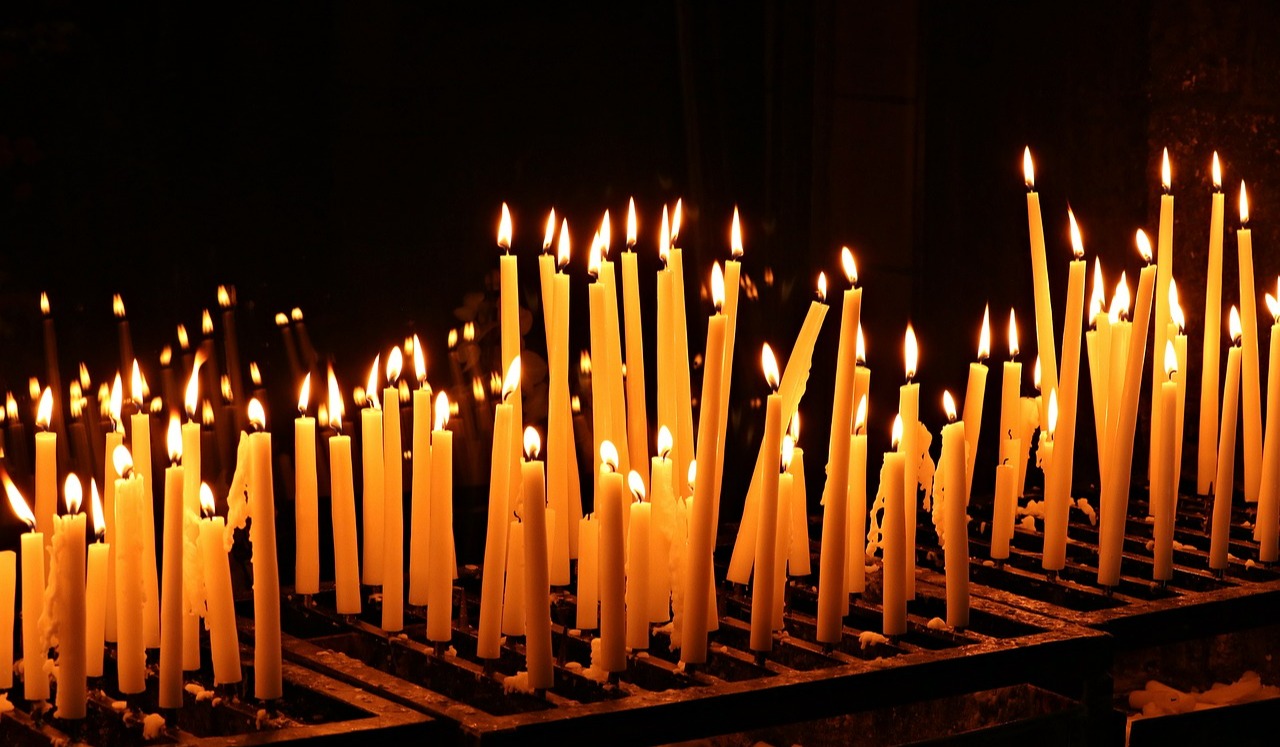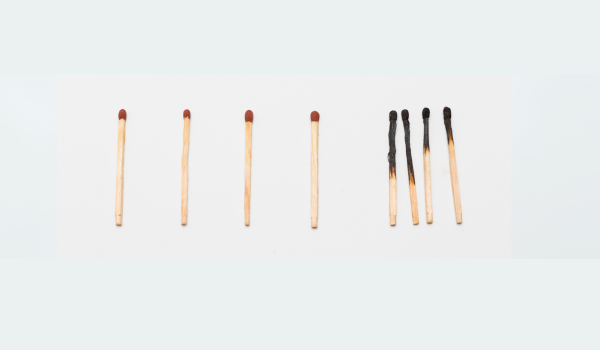1 min read
Hail satan, As-salamu alaykum, Namaste, Mazel tov, and thank god
Being a therapist in Southern Louisiana means that many of my clients have grown up with religion and that their religion/faith is an integral part...

Living and working in South Louisiana, religion (more specifically Christianity) is baked into so much of our day to day life. Some of my non-Southern and especially my non-American friends have been baffled by the overt religion in spaces where it doesn't seem relevant; for example, verses from the Bible posted prominently on a local restaurant's social media page or the choice to play the local contemporary Christian radio station loudly in the waiting room of a multi-doctor medical office. For people who have left the faith, been harmed by religion, and/or those who identify with minority religious groups, finding themselves in the non-consensual, overtly Christian environment can be uncomfortable and at times even painful. It's possible to avoid the public spaces, businesses, and organizations wherein overt religious content shows up, but what happens when the space is your own family?
As I write this it is late December, and I have found myself thinking of my non-religious clients as I have happily sung along to my favorite Christmas songs, most of which involve the Christian story of Jesus and his birth. This is a particularly tough season for my agnostic and atheistic clients, especially when the shift away from the religion of their youth leaves them feeling at odds with their family. What people describe struggling with the most is in knowing that a shift in religious beliefs doesn't just affect religious values; the shift is also in the very way folks relate to themselves, others, and the world.
This grief isn't limited to the person who deconverts. So long as family is aware, they are sure to experience grief over this shift. And for people who have grown up in more traditional religious foundations, especially those also raised as female, the pressure to people-please can compound the grief around a deconversion and lead to fear, shame, and further isolation.
Navigating this landscape can be difficult, so here are a few concepts that my clients and I have discussed as potentially useful:
For some clients, "coming out" and inviting their family to get to know them and their changed view is an important step in managing the discomfort of the change. Sharing what you believe, what you do not believe, and sometimes the process that led to this new place can also more easily lead to the ability to set boundaries with family. For example, if you share that you no longer ascribe to the teachings of the Christian church, it's much easier to state that you would like to not be expected to pray before a meal.
There are some families that are not safe places to become fully vulnerable. And some people simply desire the ability to have more privacy, especially in terms of topics related to their core values, like religion and faith. Actively working to develop a sense of where you prefer to be on the spectrum of openness with family is a valuable skill and can feel empowering, especially if privacy was not allowed in the religious foundations of childhood.
Many clients who go through the process of discovering their unique identity apart from their family, in terms of religion and other important aspects of life, tell me that they have been able to build and foster connection with family through shared interests, hobbies, and even just quality time with one another. Finding the beauty in traditions that are congruent with new or changed values can be a route to connection that works for what people need.
I also think there's something really powerful in allowing grief to be the common ground. Knowing that your still religious family is grieving their loss (for what feels like literally all of eternity) of you, can allow empathy to arise in moments of difficulty. Empathy can dampen feelings of anger, which aids in healing and connection.
Support can come from within the family and outside of it. I think many of us can think of one family member who is our ally - even sometimes without there ever being an outright discussion about what makes us committed to one another. If you are lucky enough to have that family member, lean on them during more difficult times and support one another. If you don't have an ally in the family, build these kinds of connections outside of your family. Some clients have talked about how grateful they are to have a friend who supports them at difficult or more anxiety-provoking family get-togethers, whether they joined in person or were available via texting. There are communities of people, in person and online, who are working through their own religious beliefs. They can be an asset.
Of course it's also important to point out that counseling can be a helpful support through difficult topics such as this. Working with a therapist with whom you feel safe enough to talk about religion (and any other more taboo topic) can be an important piece of the process of self-discovery and help to prepare you for the possibility of allowing other folks to get to know the new you. If you're in South Louisiana, it can be difficult to find this kind of therapist - many counselors and other mental health professionals are also religious themselves, and while it does go against our respective Codes of Ethics, I have had clients share the stress of being surprised by religion being brought in to the therapy room without their consent. I want to give you permission to set this kind of boundary and expectation with your therapist. Let them know what you do and do not want as part of your therapy. If you are interested in finding a therapist who is specifically secular, the Secular Therapist Directory is a good place to start.

1 min read
Being a therapist in Southern Louisiana means that many of my clients have grown up with religion and that their religion/faith is an integral part...

Surprise, surprise - another autism blog for you this month! I'm nothing if not honest when I say that this has been my special interest. And my...

I have been noticing a pattern lately (hello, Whitney's Autism), both in terms of things I'm seeing in the online spaces I'm in and also in the...